Every two years, we embrace the magic of the Olympic Games. We watch from the sidelines as athletes display superhero levels of physical and mental strength and determination. We learn their names and their stories—but how much do we know about this incredible event itself? Feeling curious? As we get ready for the Paris 2024 Summer Olympic Games, here are some fascinating and inspiring Olympics facts for kids (and grown-ups too!).
40 Fun Olympics Facts for Kids
1. The first Olympic Games took place in 776 B.C.

As part of an Ancient Greek festival held to honor and celebrate Zeus, the Olympic Games included boxing, chariot racing, discus, long jump, javelin, and wrestling and could last up to six months! Watch this video to learn more.
2. Athletes in the ancient Olympic Games competed in the nude.

The word “gymnasium” is derived from the Greek root “gymnos,” which means nude. Some early Olympians competed nude at just 12 years old!
3. The Ancient Olympic Games ended in A.D. 393.

Due to the religious elements incorporated into the celebrations, Emperor Theodosius I, a Roman ruler, considered the Olympics a pagan festival and banned them. Watch this video to learn more about why the Romans canceled the Games.
4. The first modern Olympics took place in Athens, Greece.

Baron Pierre de Coubertin revived the games in 1896, calling this new event the “modern Olympics”—and it’s still going strong today. Learn more about how this happened!
5. The modern Olympics have been hosted by 23 countries.
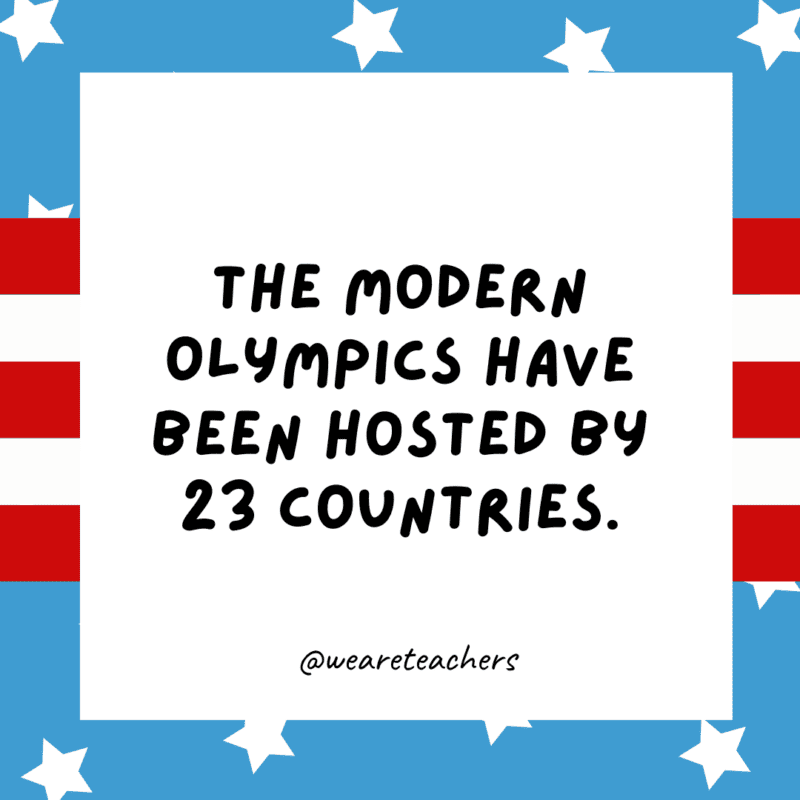
Olympic host nations include Australia, Austria, Belgium, Brazil, Canada, China, Finland, France, Germany, Greece, Italy, Japan, Mexico, the Netherlands, Norway, Russia, Spain, Sweden, Switzerland, South Korea, the United Kingdom, the United States, and Yugoslavia.
6. Artists used to participate in the Olympics.

From 1912 to 1952, artists such as architects, painters, musicians, sculptors, and writers would compete for medals. Learn more about one of the most interesting Olympics facts for kids!
7. The Olympics used to be in summer only.
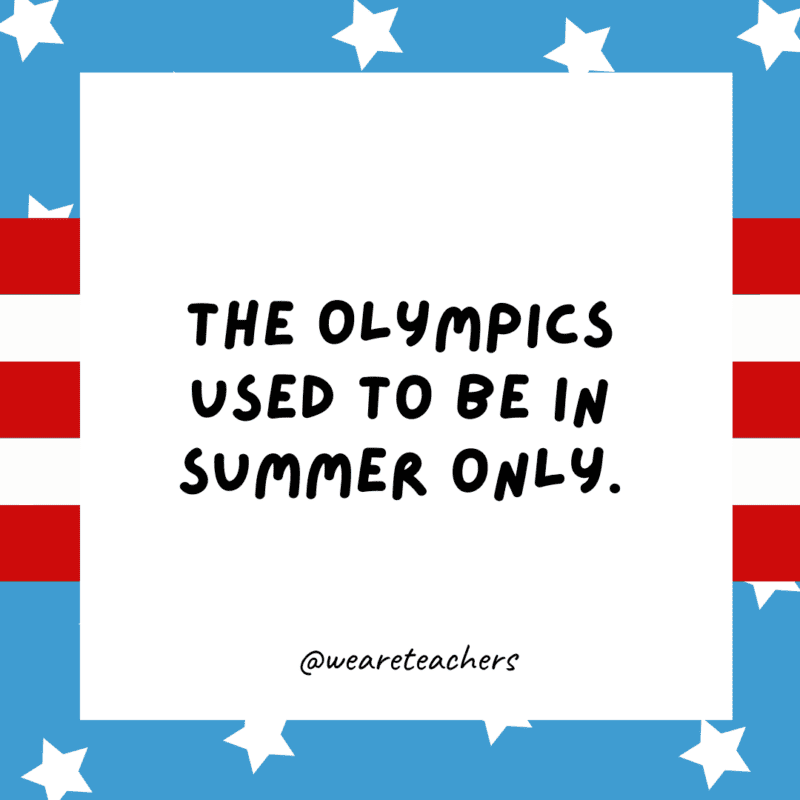
The first winter games didn’t take place until 1924.
8. The Winter Games have never taken place in the Southern Hemisphere.
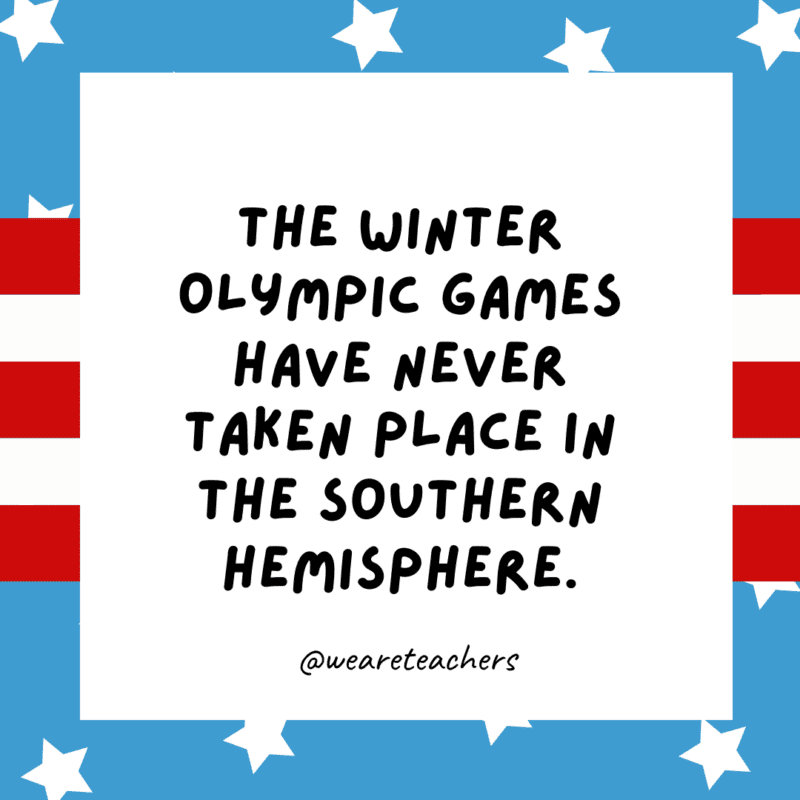
The weather is too warm there. Winter sports need ice and snow!
9. The only country to host the Summer Olympics four times is the United States.

The Summer Games took place in St. Louis (1904), Los Angeles (1932 and 1984), and Atlanta (1996). The city of Los Angeles will host the Games for the third time in 2028.
10. London is the only city to host the Summer Olympics three times.
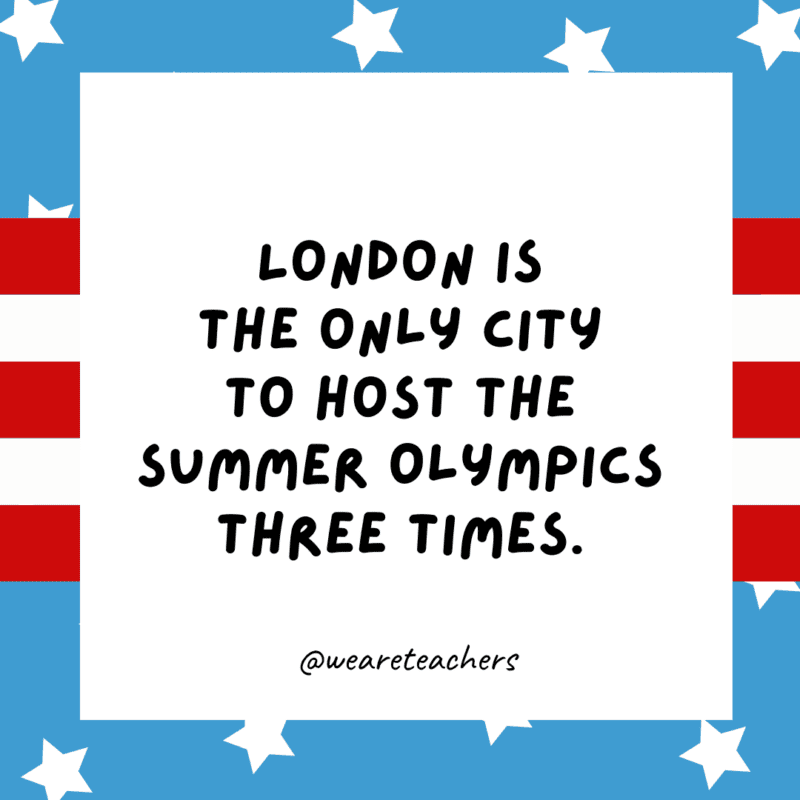
The Summer Olympics took place in London in 1908, 1948, and 2012.
11. The modern Olympics have been canceled three times.
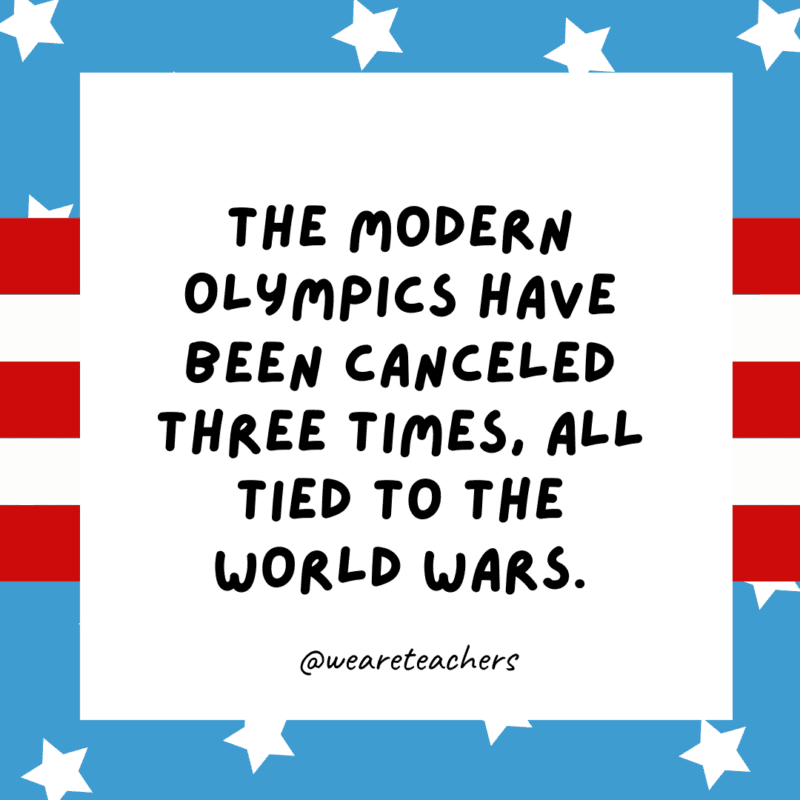
The Games were called off due to World War I (Berlin 1916) and World War II (Tokyo 1940 and London 1944).
12. The five rings in the Olympic logo represent the five world regions that the athletes originally came from.

The five intertwined rings represent the solidarity and unity of five areas of the world—Africa, America (North and South America), Asia, Europe, and Oceania (Australia). Learn more about what the Olympic rings really mean.
13. The Olympic ring colors represent every national flag.
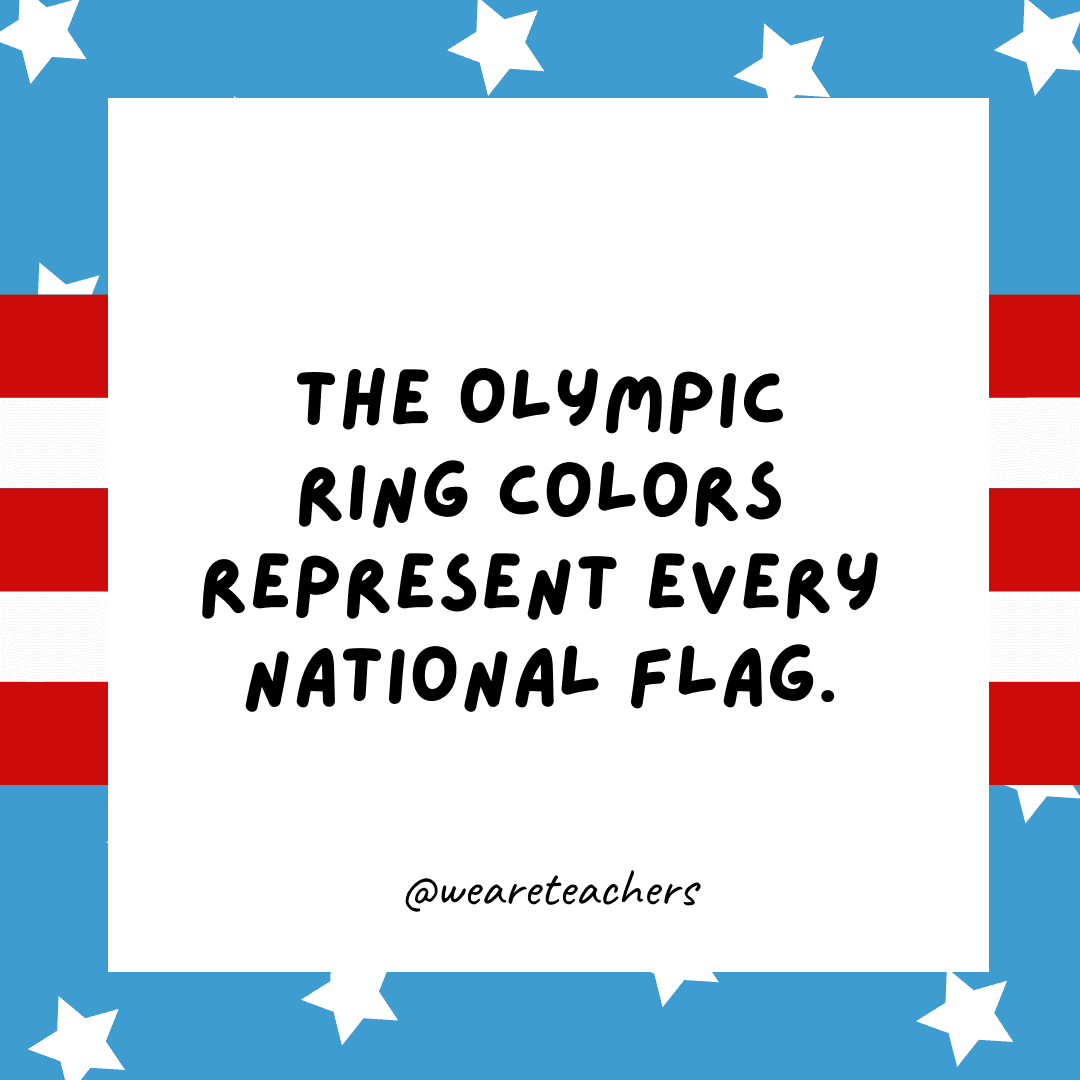
When Baron Pierre de Coubertin founded the modern Olympics, he specifically chose the colors (blue, green, yellow, black, and red), along with white, to include colors from all national flags in existence at that time.
14. Every Olympics has a specific slogan.

The slogan for the 2024 Paris Summer Olympics is “Games Wide Open.”
15. In the ancient Olympics, winners received an olive wreath.
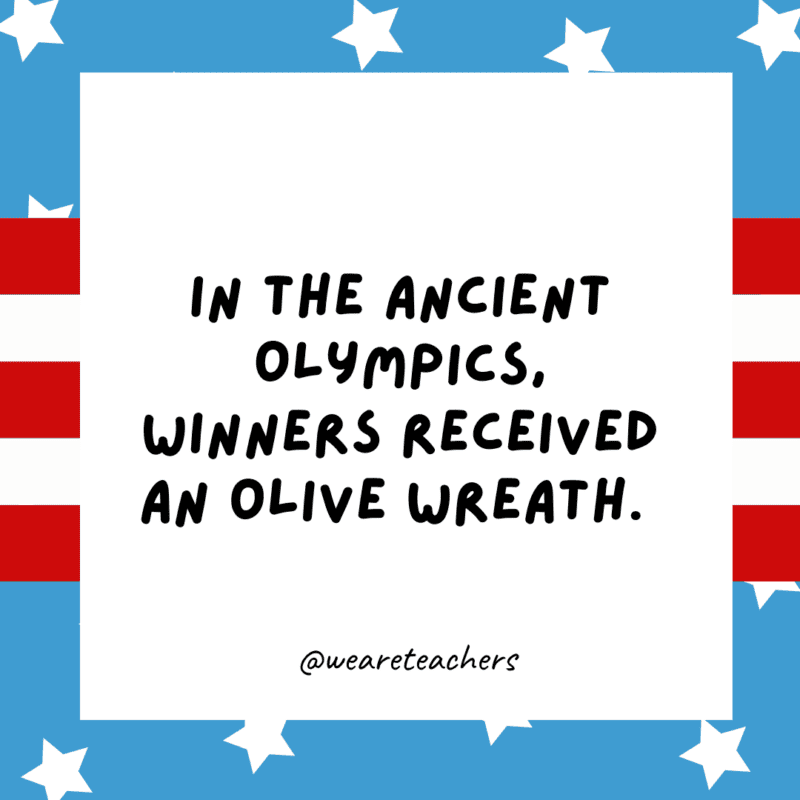
There were no medals given during the Ancient Olympic Games.
16. Gold, silver, and bronze medals were introduced in 1904.
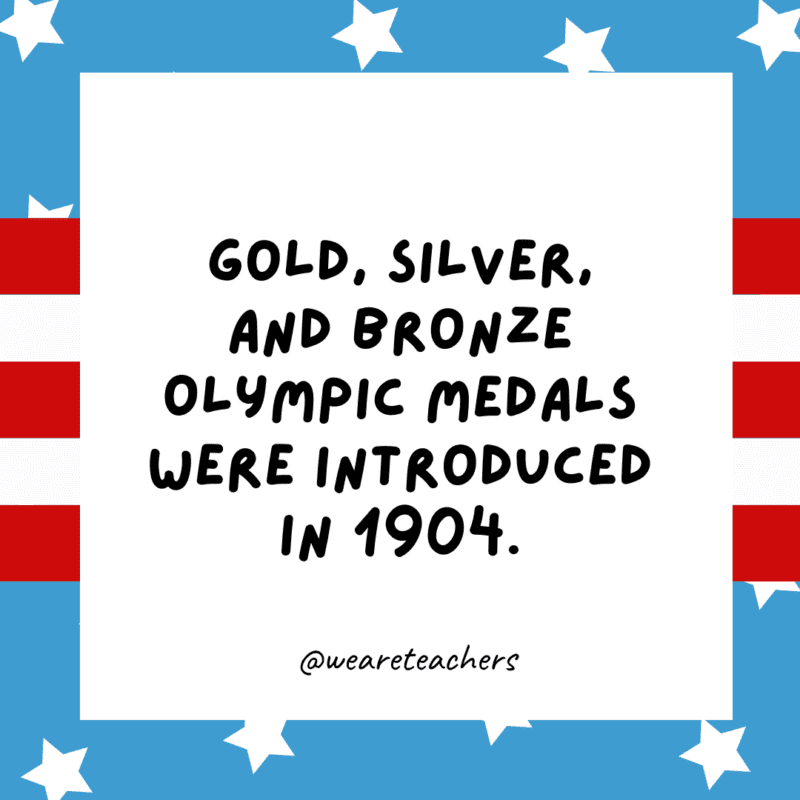
The tradition of awarding gold to first place, silver to second, and bronze to third began in St. Louis, the first Olympics held in the United States.
17. Gold medals were fully solid gold only until the 1912 Olympics.

The gold medal is no longer pure gold. It’s made mostly of silver!
18. The host city designs Olympic medals.

The host city’s Olympic organizing committee is responsible for designing the medals. Watch this video to learn how Japan used recycled consumer electronics to make the Tokyo 2020 medals.
19. The United States has won more medals than any other country.
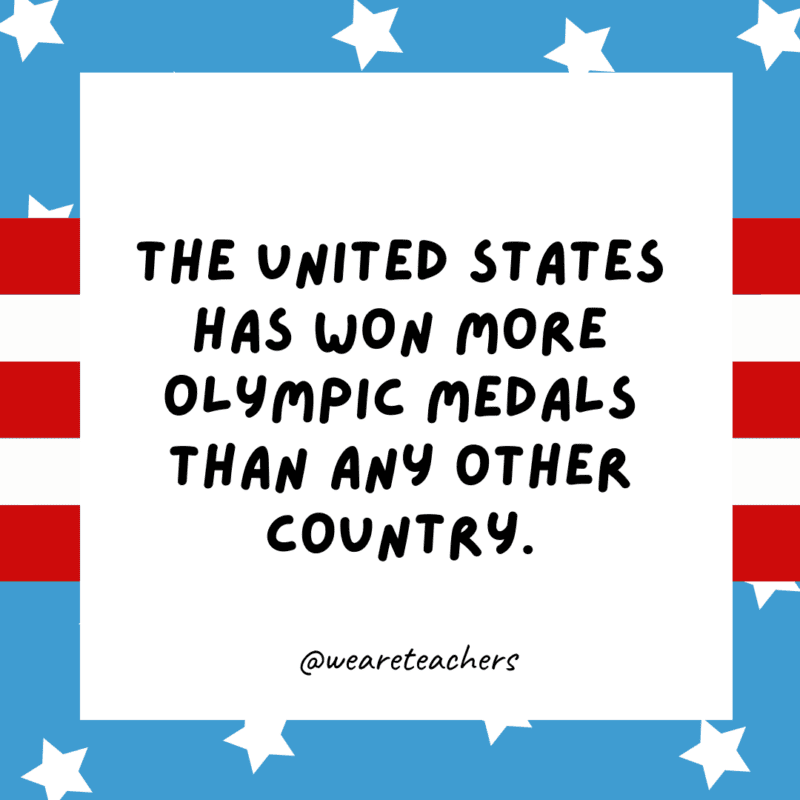
The United States has won a total of 2,960 medals in all the years of competition, including the most gold, silver, and bronze medals won.
20. Swimmer Michael Phelps is the most decorated Olympian.

The American swimmer won 28 total medals across 4 Olympics, including 23 gold medals. Soviet gymnast Larisa Latynina is second with 18 medals. Watch this video of inspiring Olympics facts for kids featuring athletes with the most Olympic medals ever!
21. Only two athletes have won gold medals at both the Summer and Winter Olympics.
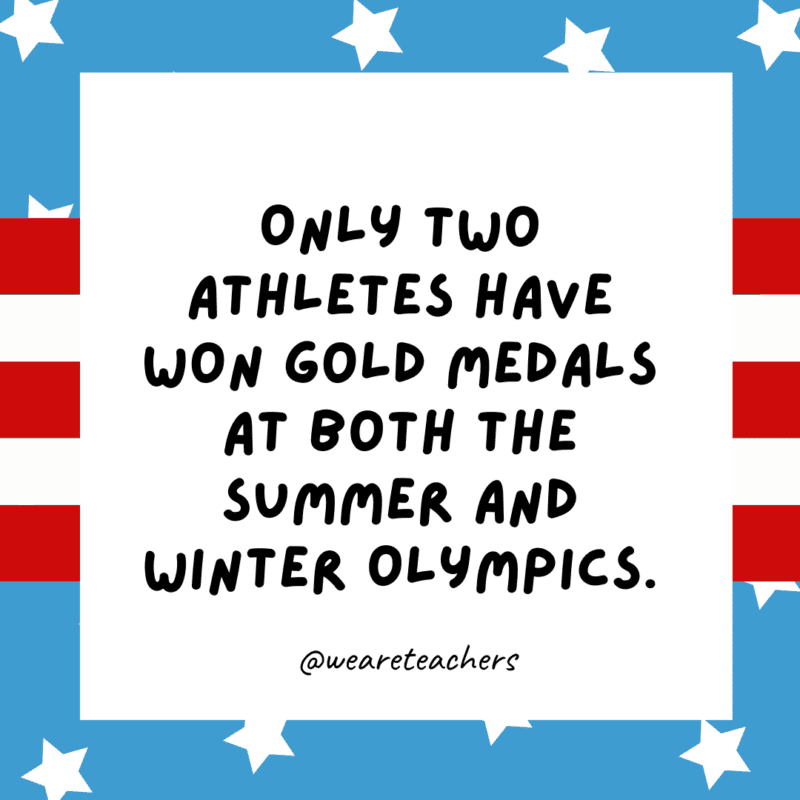
Sweden’s Gillis Grafstrom won the gold in figure skating at the 1920 Summer Olympics and again in 1924 and 1928 when it moved to the Winter Games. American athlete Eddie Eagan won gold in boxing in 1920 and again in the team bobsled event at the 1932 Winter Games.
22. Two athletes have won gold for two different countries.
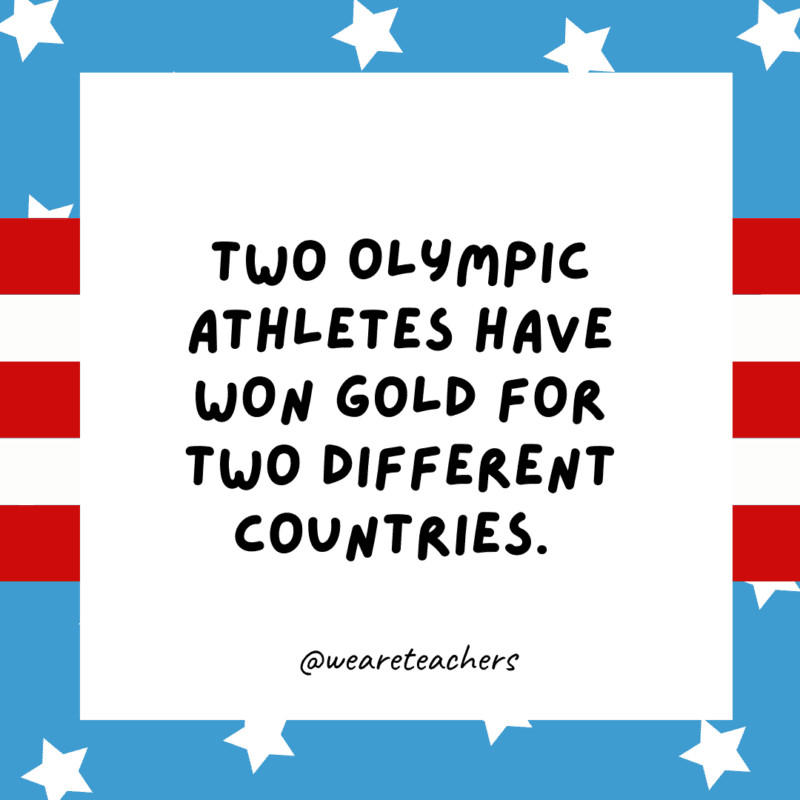
Rugby player Daniel Carroll won for Australia in 1908 and the United States in 1920. Men’s weightlifting champion Kakhi Kakhiashvili won as part of the Unified Team at the 1992 Barcelona Games and for Greece in both 1996 and 2000.
23. The youngest Olympian in the modern era was just 10 years old.

Greek gymnast Dimitrios Loundras competed in the 1896 Athens Olympics. Learn more about his historic performance.
24. Women could not compete in the Olympics until 1900.

The Olympic Games were a men-only event for a very long time. Women couldn’t compete in volleyball and luge until 1964, weightlifting until 2000, or boxing until 2012. Learn more about the history of women and the Olympic Games.
25. The Olympic flame travels from Greece to the host nation every two years.
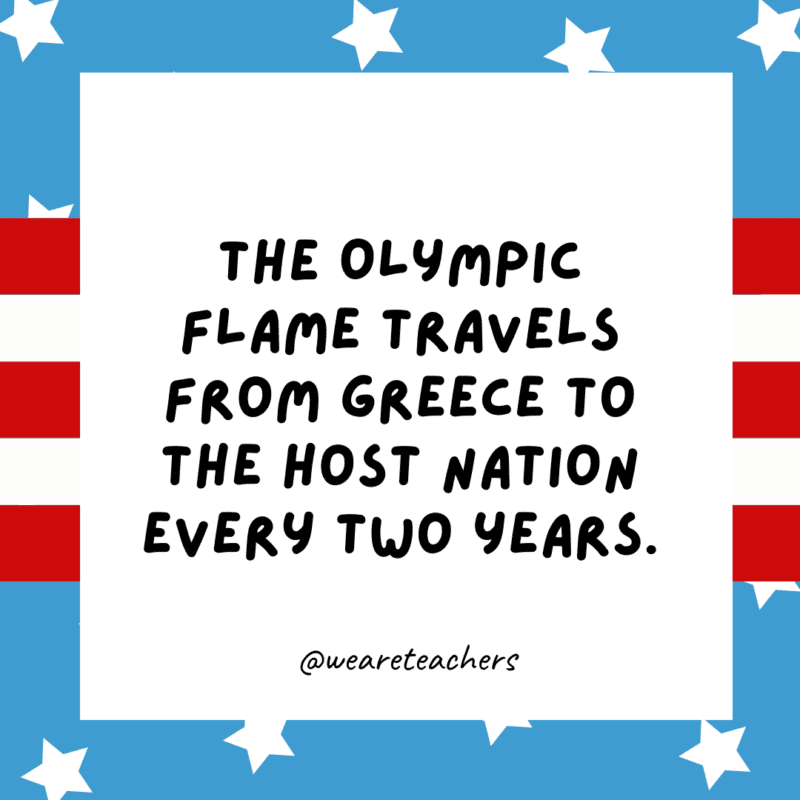
Before each Olympics, the flame is lit at Olympia in Greece. It spends two years traveling to and around the host nation until it’s used to light the Olympic Cauldron at the Opening Ceremony. Learn more about the history of the Olympic flame and read more about the specific route for the Paris 2024 Olympic Torch Relay!
26. The Opening Ceremony procession has a specific order based on the alphabet.
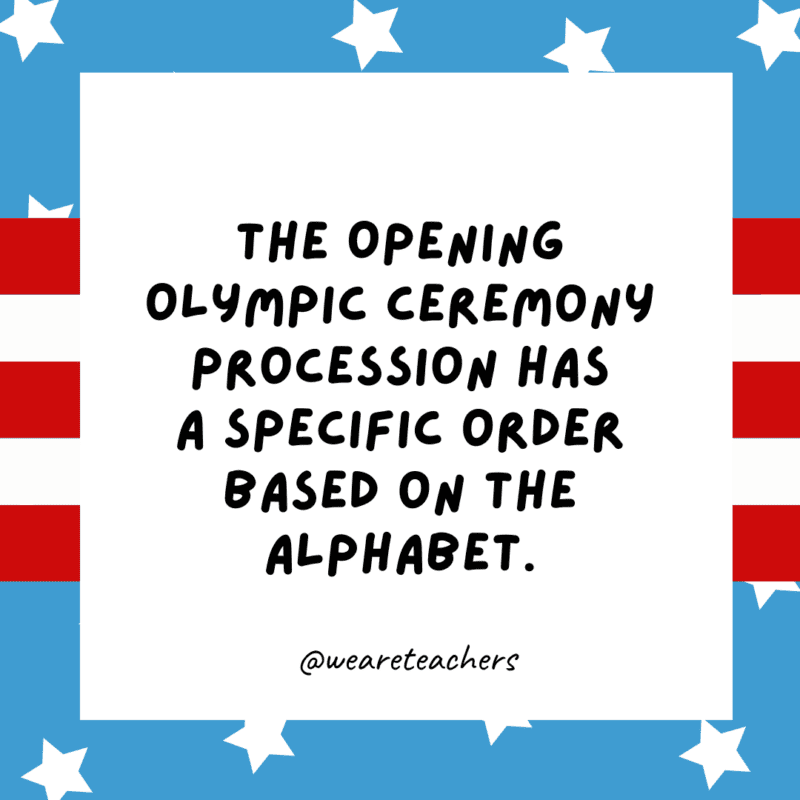
The Parade of Nations is always led by the Greeks and ends with athletes from the host nation. All other countries enter in alphabetical order according to their native language.
27. The 1960 Rome Games were the first televised Olympics in the United States.

CBS was the first to broadcast the Olympics, bringing the Games into the homes of Americans.
28. Only five countries have competed in every Summer Olympics.
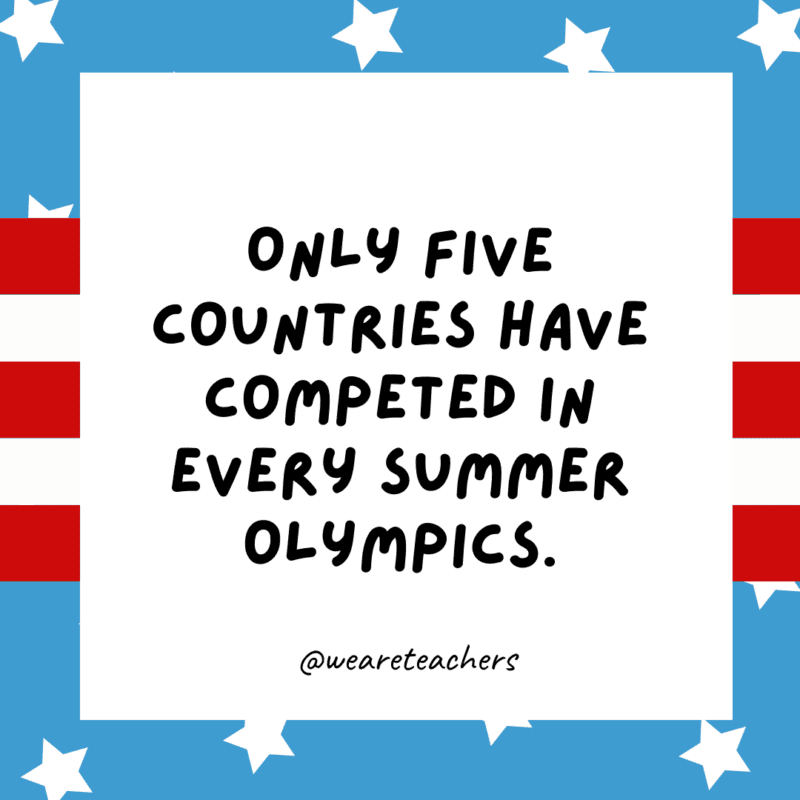
Greece, Australia, France, Great Britain, and Switzerland have sent athletes to every single Summer Games.
29. Live pigeon shooting was a one-time Olympic event.
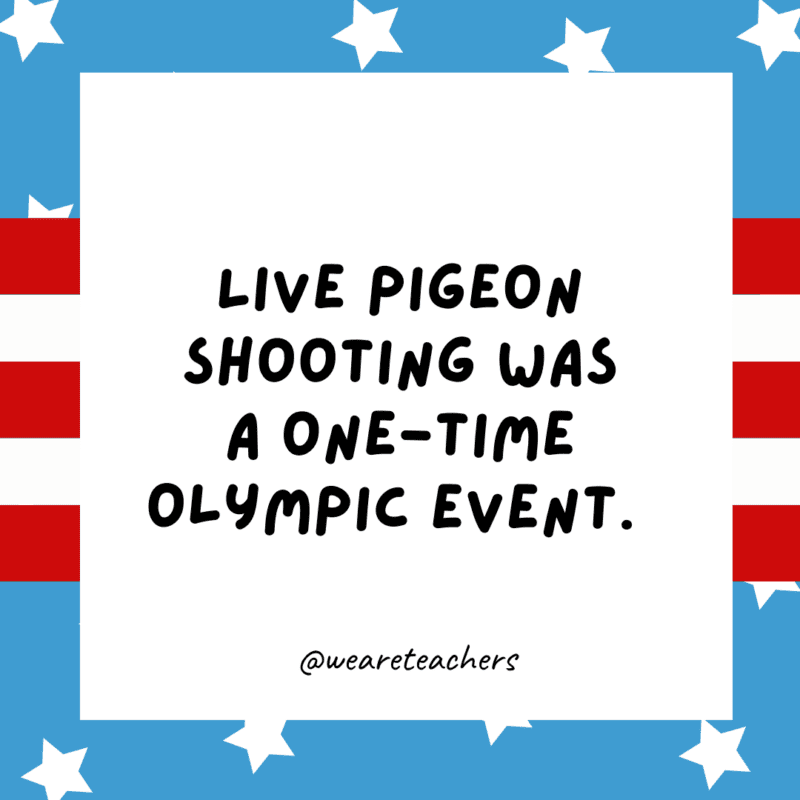
Live pigeon shooting was an archery event at the 1900 Olympic Games.
30. Figure skating was originally part of the Summer Olympics.

The figure skating event first appeared at the 1908 Summer Olympics but moved to the Winter Olympic Games in 1924.
31. Golf made a comeback at the 2016 Olympic Games.

After being out for 112 years, golf returned to the Olympics in 2016 alongside four new sports: karate, skateboarding, sport climbing, and surfing.
32. Tokyo 2020 was the first ever gender-balanced Olympic Games.

Nearly 49% of the athletes who participated in Tokyo were women. The Tokyo Games also featured a groundbreaking competition schedule that ensured “equal visibility between women’s and men’s events and featuring nine more mixed events than at Rio 2016.”
33. There is a Refugee Olympic Team.
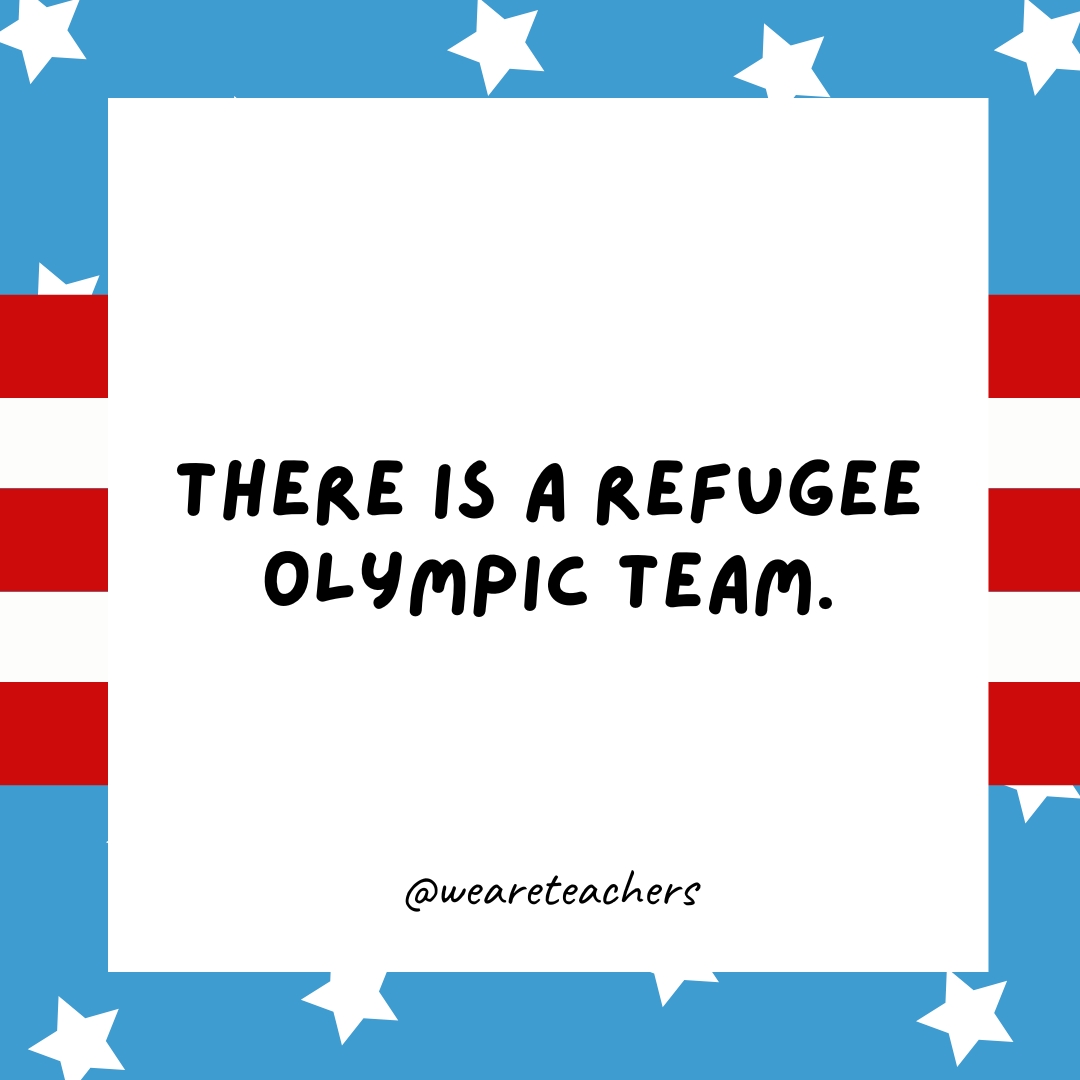
First introduced at the 2016 Rio Games, the Refugee Olympic Team includes athletes representing millions of refugees around the world and bringing attention to global refugee crises. Meet the IOC Olympic Refugee Team for Paris 2024.
34. There were no spectators at the Tokyo 2020 Summer Olympics.

Due to the ongoing COVID-19 pandemic, officials first banned overseas spectators and then eliminated spectators entirely.
35. Paris will host Olympic Games exactly 100 years apart.
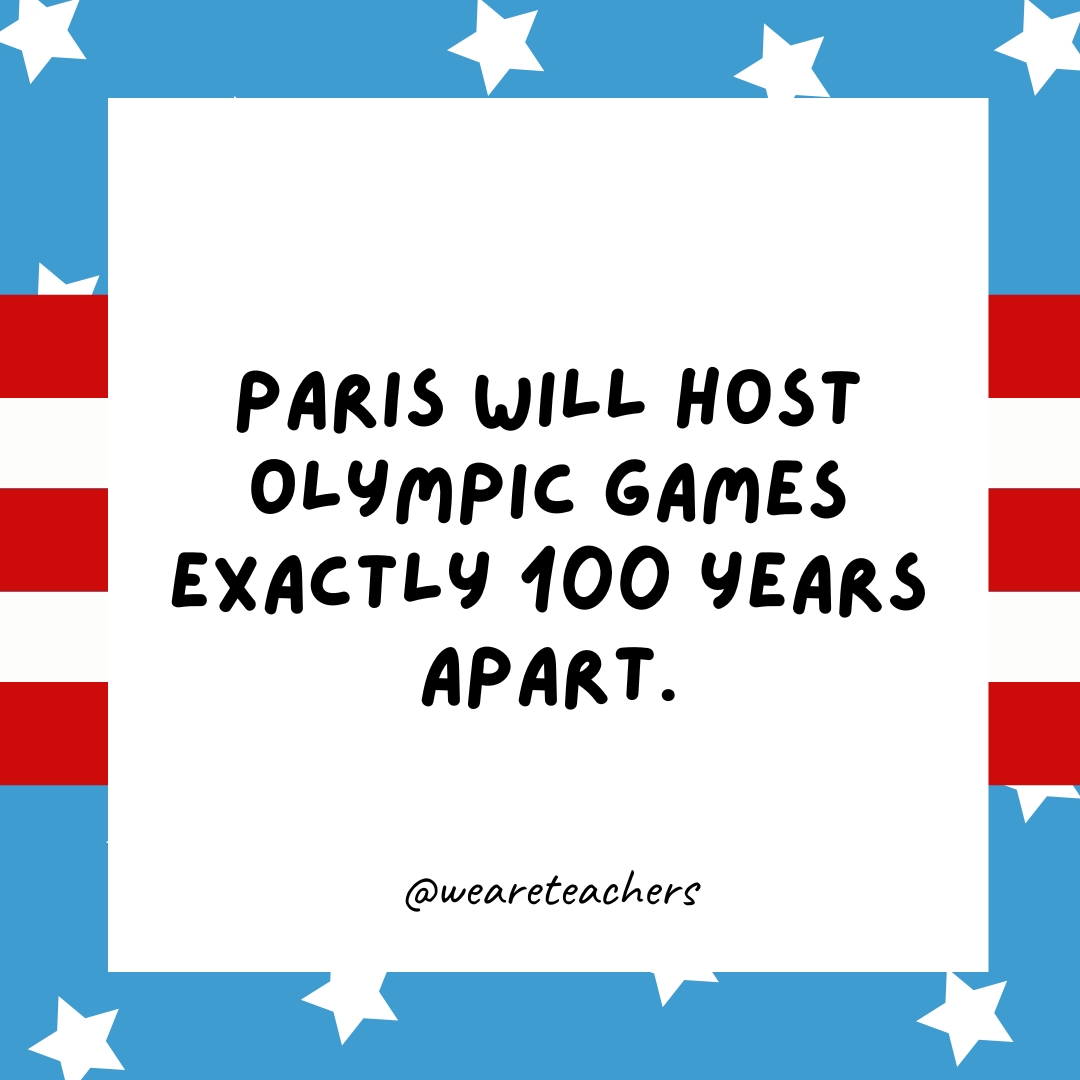
Paris last hosted the Olympic Games in 1924, making the Paris 2024 Olympics a significant historical moment and one of the great Olympics facts!
36. Breaking, aka breakdancing, will be an Olympic sport in 2024.

Athletes (known as B-Boys and B-Girls) will compete and be judged on aspects like technical skills and creativity. This event was wildly popular at the 2018 Summer Youth Olympics.
37. The surfing events at the 2024 Paris Olympics will take place in Tahiti.

Tahiti, the largest island in French Polynesia (an overseas French territory), is known for being one of the most challenging surfing locations in the world. This will be the farthest Olympic event ever held from the host city, making this one of the more unique Olympics facts.
38. The Paris 2024 Olympics marathon will be inclusive.
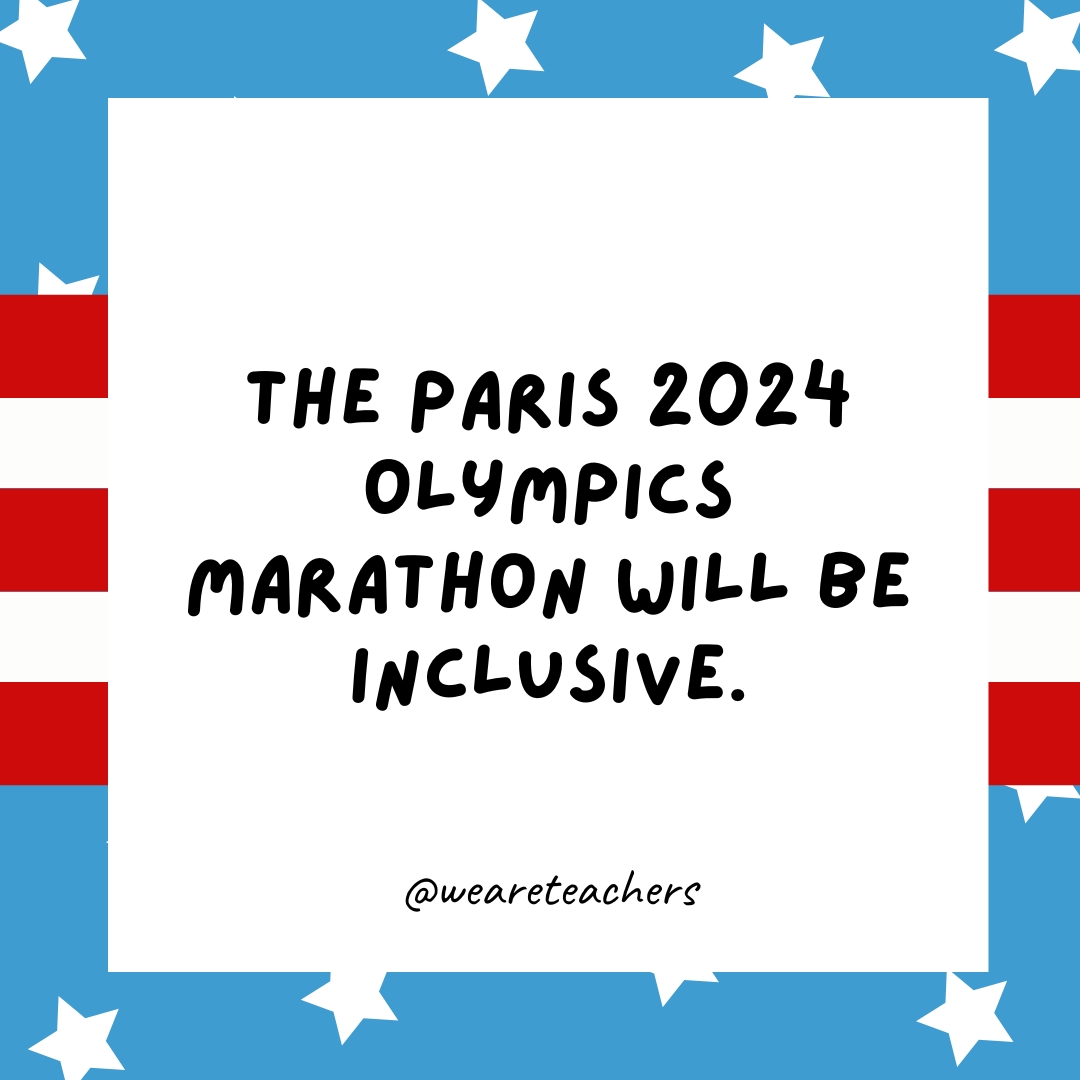
In a first, the Paris Olympics will include a mass participation marathon, allowing amateur runners to compete on the same course as professional athletes, fostering a greater connection between the Games and the general public.
39. The Olympic Rings were mounted on the Eiffel Tower.
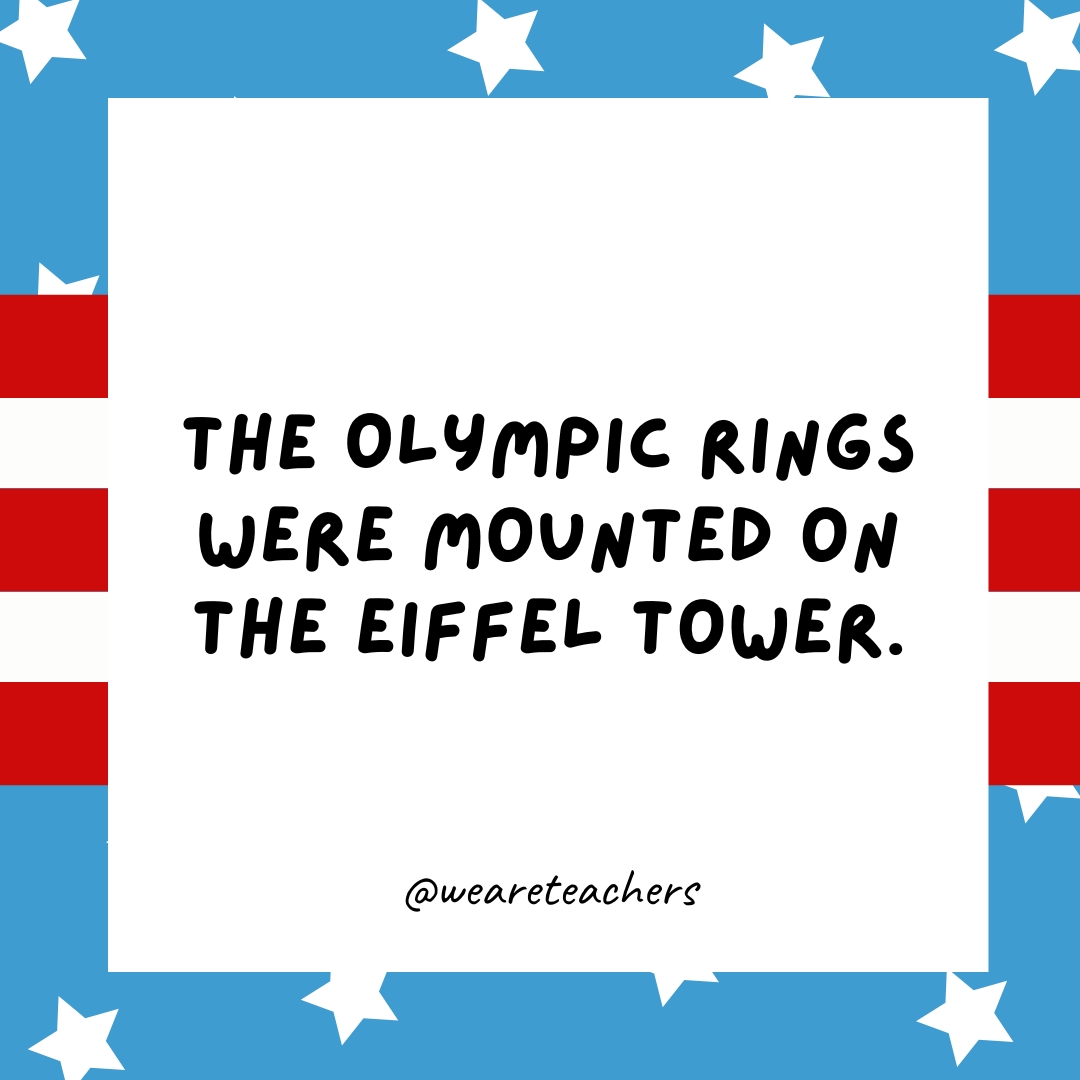
The historic landmark was decorated with the rings 50 days before the start of the Paris 2024 Games.
40. The Paris 2024 Opening Ceremony will make history with its setting.

For the first time in Olympic history, the opening ceremony will not take place in a traditional stadium setting. Instead, it will be held on the River Seine, creating a spectacular parade of athletes and performances right through the heart of Paris.

